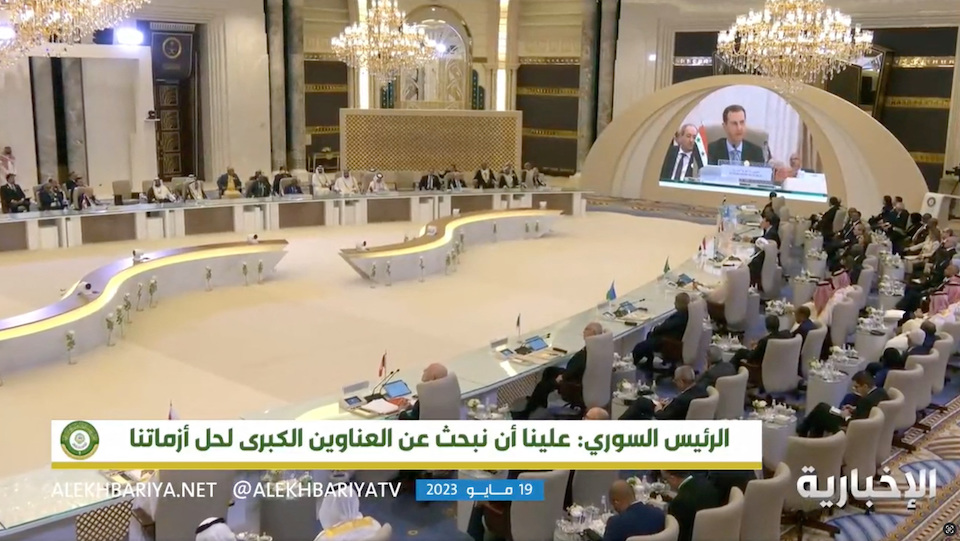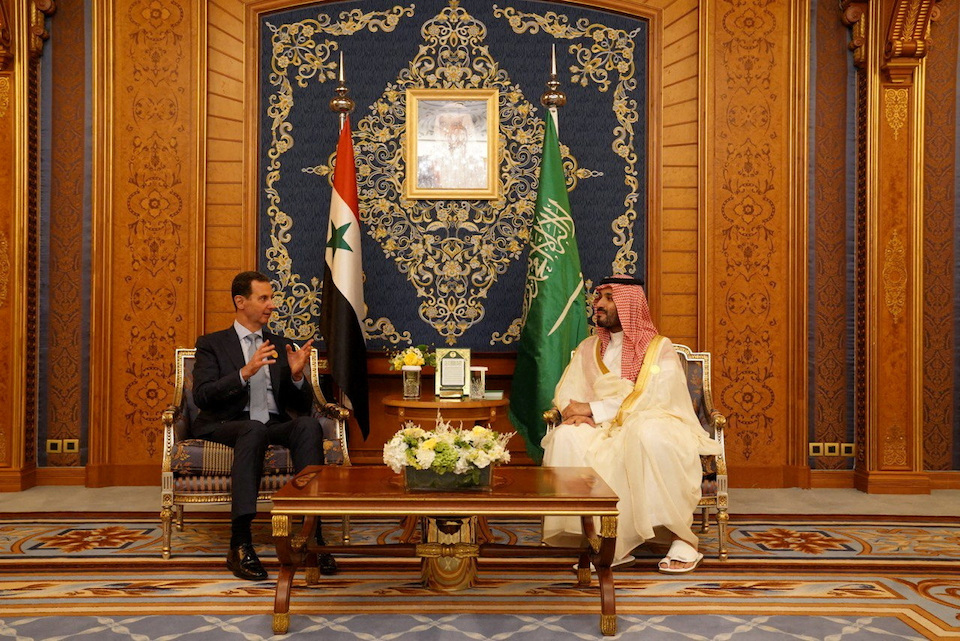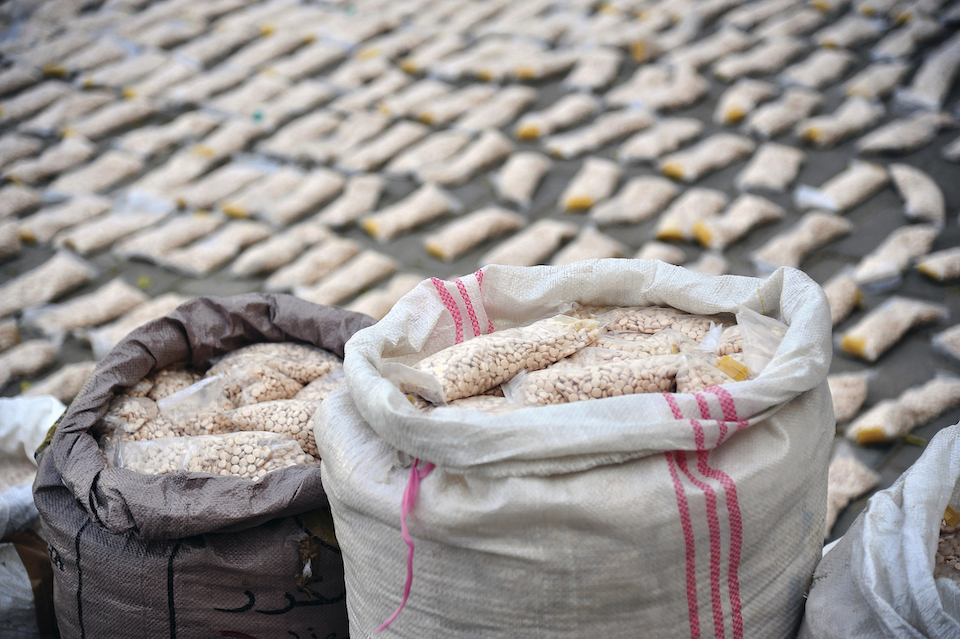
In the past decade, very few Arab leaders have dared to approach Bashar al-Assad her Syria. Countries such as Iran and Russia, of course, were next to him all previous years. For most of the rest, on the contrary, about Bashar al-Assadthe so-called “butcher” by his critics, was persona non grata for a number of years.
However, what has been true so far is obviously no longer true.
In recent weeks, Assad has given his “presence” to the summit Arab League V Jeddah her Saudi Arabiawhere he was even warmly welcomed by the crown prince Mohammed bin Salman.
Also in recent weeks, a Syrian official has attended his summit. World Health Organization (WHO), which took place in Genevawhile Damascus was also invited to the upcoming UN Climate Change Conference KS28 which is expected to take place during 2023. Abu Dhabi.

No, the Arabs have clearly not forgotten the hostility they faced with Assad. It’s just that now, in a changed international environment and under the weight of new challenges, they feel that they would better serve their political and economic goals if they were approached again.
Story
Bashar al-Assad was not destined to rule Syria. As the youngest son of Hafez al-Assad, he returned to the country in 1994 from the United Kingdom, where he was when his older brother was killed in a car accident. He himself studied ophthalmology and finally came to power in 2000 when his father died.
However, as the Eurasia Network Gzero website notes in its analysis, Bashar never succeeded in instilling in him the faith that Hafez instilled. Instead, he supported the Alawites as Alawites at the expense of other Muslims, and also used sectarian tensions within Syria’s borders in a “divide and rule” approach to gain a foothold in power.
And then, when in 2011 the citizens protested against his authority, instigated by the then events Arab springBashar responded with a brutal crackdown, a crackdown that eventually turned into a civil war (with the characteristics of a proxy war), a civil war that has killed over 500,000 people to date and displaced about 13 million people.
Assad’s side is accused of using chemical weapons (sarin, etc.) hundreds of times during the war. On the contrary, the United States and the Persian Gulf countries have strengthened the forces of the Syrian opposition with millions of dollars.
However, now the data seems to have changed.
Role of Saudi Arabia
One of the most significant changes in attitudes towards Assad, according to Gzero’s analysis, occurred with Saudi Arabia.
But why did the Saudis get back together with Assad?
According to Gzero, the Saudis see regional instability as undermining Riyadh’s economic ambitions, which are based on the goal of diversifying the Saudi economy away from hydrocarbons.

The de-escalation of regional tensions, according to the Saudis, is the key to attracting the investment needed to launch new industries.
The devastating earthquakes that struck not only Turkey but also Syria in February last year gave the Saudis the opportunity to formally initiate contacts with Bashar al-Assad’s side on humanitarian grounds.
At the same time, Riyadh claims to be a regional leader (competing with countries such as Turkey and the United Arab Emirates) and in this context wants to prove that it can contribute to the resolution of conflicts and problems that others cannot. manage.
However, not all forces in the region are ready to put up with Assad. Countries such as Qatar and Kuwait continue to keep Damascus at bay, while Assad and the West (US and EU) remain viewed with suspicion and objection.
Otherwise, Assad’s return to the international stage as the de facto and de jure leader of Syria certainly seems to be favorable for Iran, but also for Russia, countries whose backing of Bashar al-Assad has remained in power.
Refugees, drug trafficking and reconstruction
However, on a purely practical level, there are “backlogs” associated with Syria that will have to be addressed at some point.
In total, the millions of Syrian refugees who have taken refuge in countries such as Turkey, Lebanon, Jordan, Iraq and Egypt will at some point have to start returning to their homeland, as this is what the countries currently hosting them require.

The reconstruction of war-torn Syria is also a critical issue with significant international/economic implications.
While the goal of combating the drug trade (see Captagon pills), which is raging with a focus on Syria, is now very high in the priorities of the international factor. In total, more than 250 million Captagon (amphetamine) tablets have been seized internationally this year. The Syrian drug trade is currently worth about three times as much as all of the Mexican cartels combined, according to a British government report. The effects of the spread/expansion of this trade are particularly visible in countries such as Jordan, where drug-related crime is reaching epidemic proportions among young people.
The problem has become so serious that Jordan even carried out airstrikes in Syria last month to target drug trafficking networks.
Source: Kathimerini
Anna White is a journalist at 247 News Reel, where she writes on world news and current events. She is known for her insightful analysis and compelling storytelling. Anna’s articles have been widely read and shared, earning her a reputation as a talented and respected journalist. She delivers in-depth and accurate understanding of the world’s most pressing issues.